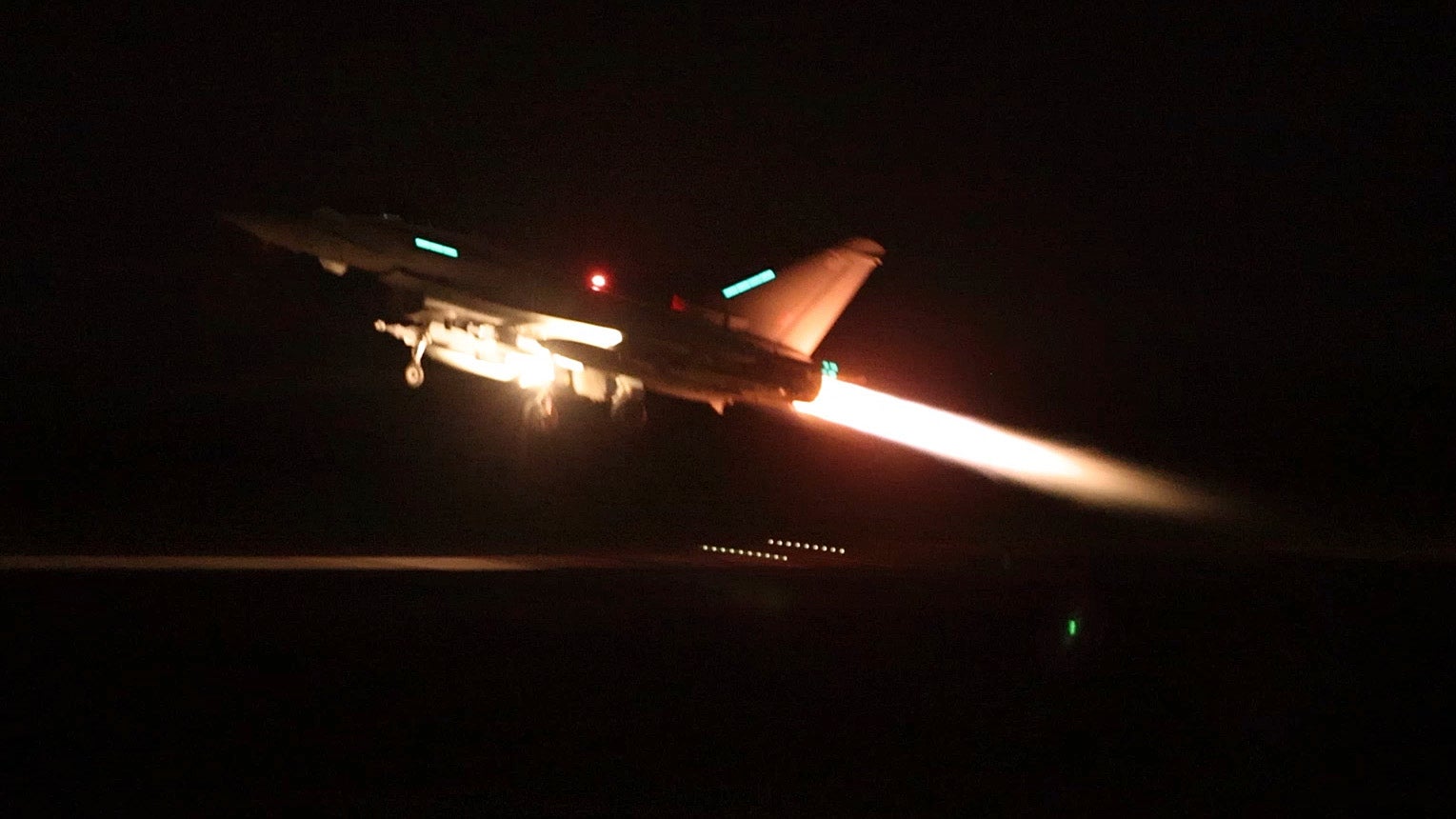Sorry, Mr Sunak – even ‘minor’ military raids in the Middle East spin out of control
Editorial: The prime minister is wrong to believe his excursions into Yemen, in lockstep with the US, will be easily contained. He must now explain how victory is to be achieved – and his plan if the Houthis keep looking for trouble

If the prime minister today sought to reassure the House of Commons, and the country more widely, that the government has a clear strategy for the engagement against the Houthi forces in Yemen, he was not entirely successful.
Pressed on the question of the dangers of escalation, Rishi Sunak rightly pointed out that perhaps Hamas and the Houthis could de-escalate their own aggression. As the prime minister implies, had the Houthi left their considerable arsenal of cruise missiles and suicide drones undisturbed recently, then there would have been no airstrikes on Houthi bases in Yemen, no casualties, and no threat of more destruction.
It is only because the Houthi “rebels” – in reality, a de facto government in control of much of Yemen – attacked civilian vessels, kidnapped merchant seafarers and tried to sink HMS Diamond that the US and Britain, supported by Australia, Bahrain, Canada and the Netherlands, have found it necessary to interrupt the Houthi’s piracy and terrorism.
The fact that the UN Security Council has endorsed the need for free international maritime movement is further proof that the UK and US were operating under the principle of self-defence. For a change, neither China nor Russia sought to veto the UN resolution. Given that the Houthis have now attacked a tanker full of Russian oil, Vladimir Putin will believe he was wise to exercise diplomatic restraint this time.
So Mr Sunak is correct: there is no justification for the Houthi aggression, usually directed at merchant ships run by nations such as India and Singapore, far removed from the war in Gaza. In that, narrow, sense Mr Sunak has some justification for arguing that there is no “linkage”, in terms of a legitimate casus belli, between the conflicts in Gaza and in the Red Sea.
But there plainly is a connection between events in the Red Sea, the atrocities on 7 October, and the subsequent war between Israel and Gaza. There is really no need for the prime minister to refuse to accept the obvious fact that these developments are linked.
It is true that the Houthis, backed as they are by Iran, need little encouragement to throw their weight around, but the sharp spike in violence in the approaches to the Suez Canal is plainly a result of the Houthis deciding to become parties to the Israel-Hamas conflict. They seek to use terror to intimidate commerce and threaten Western economies, and in doing so exert pressure on Israel to order a ceasefire.
That is a very real linkage – and the war in Gaza is also linked to other recent events: Hezbollah missiles in northern Israel, the assassination of a Hamas commander in Lebanon, and attacks on US forces in Syria and Iraq. In this region almost everything is linked, and much of the violence over many decades, including global campaigns of terror, can trace its roots back to the Israel-Palestine issue.
It is obvious that the regrettable way that Israel has used its right to self-defence, with far too many civilian casualties, has given the Houthis a cause and a reason, however spurious, to launch their own campaign. It is summed up in the new slogan chanted at Palestinian solidarity rallies: “Yemen, Yemen, make us proud, turn another ship around!”, a rather sanitised version of their murderous habits.
Still, it is possible that a de-escalation in the conflict in Gaza would lead to a similar de-escalation in the vital waterways off the Arabian coast. The sooner a more sustainable ceasefire, on both sides, can be negotiated, the faster will calm return to international waters.
The danger now is that any such truce In Gaza will arrive simply too late because the Red Sea conflict has developed a dynamic of its own. If so, and Yemen descends into civil war once more, then it may not be long before Saudi Arabia is drawn back into its own conflict with the Houthis, which ended with an uneasy peace only last year.
That would inevitably also bring Iran closer into play, and a direct confrontation between the regional superpowers much closer. Policymakers should also be supremely conscious that Isis remains a constant irritation and source of provocation. That is a matter of extreme concern to America and Israel – and the whole world.
There is no shortage of linkages in the world’s flashpoints. The presence of Russia and North Korea behind Iran in their axis of evil links the Middle East to Ukraine and east Asia and beyond. Whether Mr Sunak likes it or not, war – as well as trade and technology – has become globalised, and all of these wars and geopolitical tensions, from Taiwan to Nagorno-Karabakh, are inextricably linked.
Mr Sunak is wrong to suppose that the nascent war against the Houthis can somehow be isolated and its escalation carefully calibrated. The prime minister has still not explained what happens next if the Houthis keep looking for trouble, how victory is to be achieved, and how and when the tankers and container ships will feel safe enough to head to the Suez Canal once again. Meanwhile, the British defence budget remains stuck in its own never-ending age of austerity.






Join our commenting forum
Join thought-provoking conversations, follow other Independent readers and see their replies
Comments